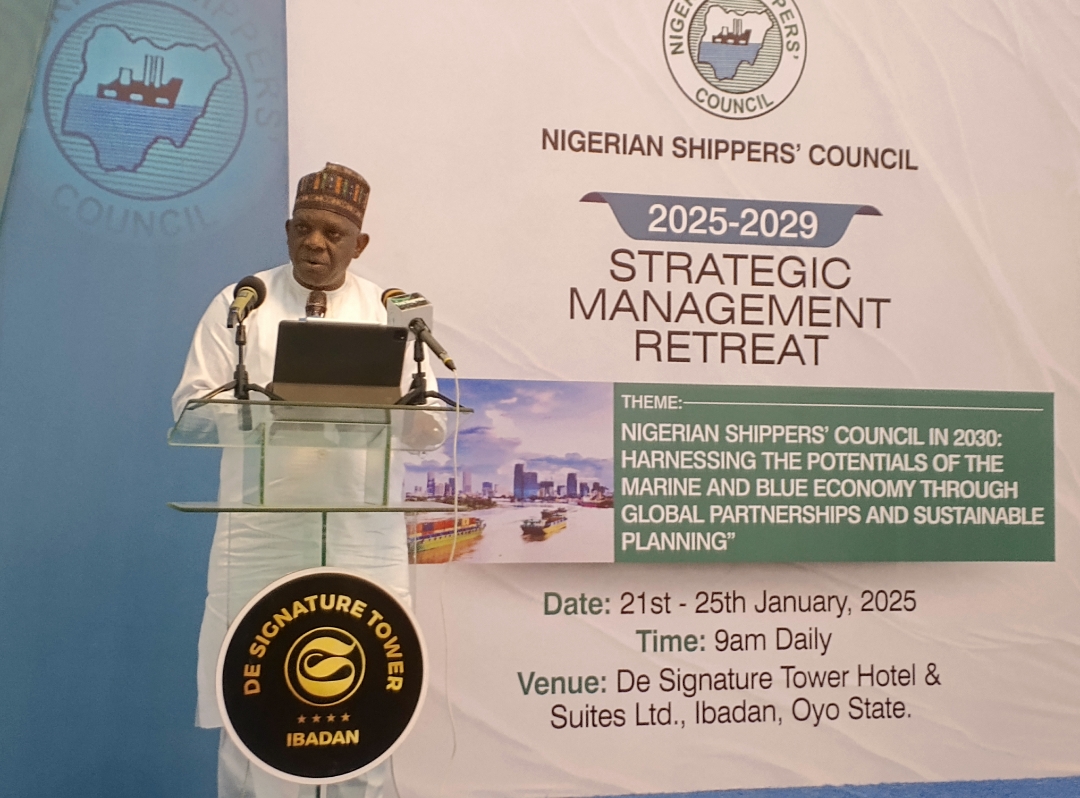
By Joshua Yousouph
The Nigerian Shippers’ Council (NSC) has unveiled plans to transform port economic regulation in Nigeria, with a focus on transitioning to the Nigerian Port Economic Regulatory Agency (NPERA) and implementing critical policies like the 1% freight stabilization fee and the International Cargo Tracking Note (ICTN) in the second quarter of 2025.
This development was announced during the Council’s strategic management retreat on Wednesday in Ibadan, where key stakeholders convened to deliberate on the roadmap for the maritime sector’s growth and sustainability over the next five years.
The retreat, themed “The Future – Transition from Nigerian Shippers’ Council to Nigeria Port Economic Regulatory Agency (NPERA),” seeks to chart the Council’s trajectory from 2025 to 2029 as it transitions into NPERA.
Speaking during his opening remarks, the NSC Executive Secretary, Akutah Pius Ukeyima highlighted the Council’s pivotal achievements over the past year, including the successful introduction of the E-Regulatory Process Portal (ERPP) and the Confirmation of Reasonableness of Demurrage, Freight Rate, and Charter Party Fees (CRD) Portal. He noted that these innovations are part of ongoing efforts to streamline operations and enhance stakeholder satisfaction.
Akutah noted that the retreat will focus on the Council’s 2025 budget, which hinges on a 1% freight stabilization fee awaiting Presidential assent under the NPERA Bill. He noted that implementing the International Cargo Tracking Note (ICTN), scheduled for the second quarter of this year, would enhance revenue generation and operational oversight.
The Executive Secretary revealed that the 1% freight stabilization fee, included in the 2025 budget, is pivotal to the Council’s revenue generation plans. According to him, once Presidential assent is granted to the NPERA Bill, the fee will come into effect, providing a sustainable funding mechanism to enhance regulatory operations and infrastructure.
Another highlight is the impending implementation of the International Cargo Tracking Note (ICTN) which Barr. Akutah assured will be implemented by the second quarter of 2025. The ICTN according to him will serve as a vital tool for improving revenue oversight and curbing illicit activities within the maritime sector.
“This retreat is not merely a planning session but a collaborative platform for crafting actionable solutions and building a solid framework for regulatory excellence
“We must seize this opportunity to shape a future of innovation, excellence, and progress,” Akutah concluded.















